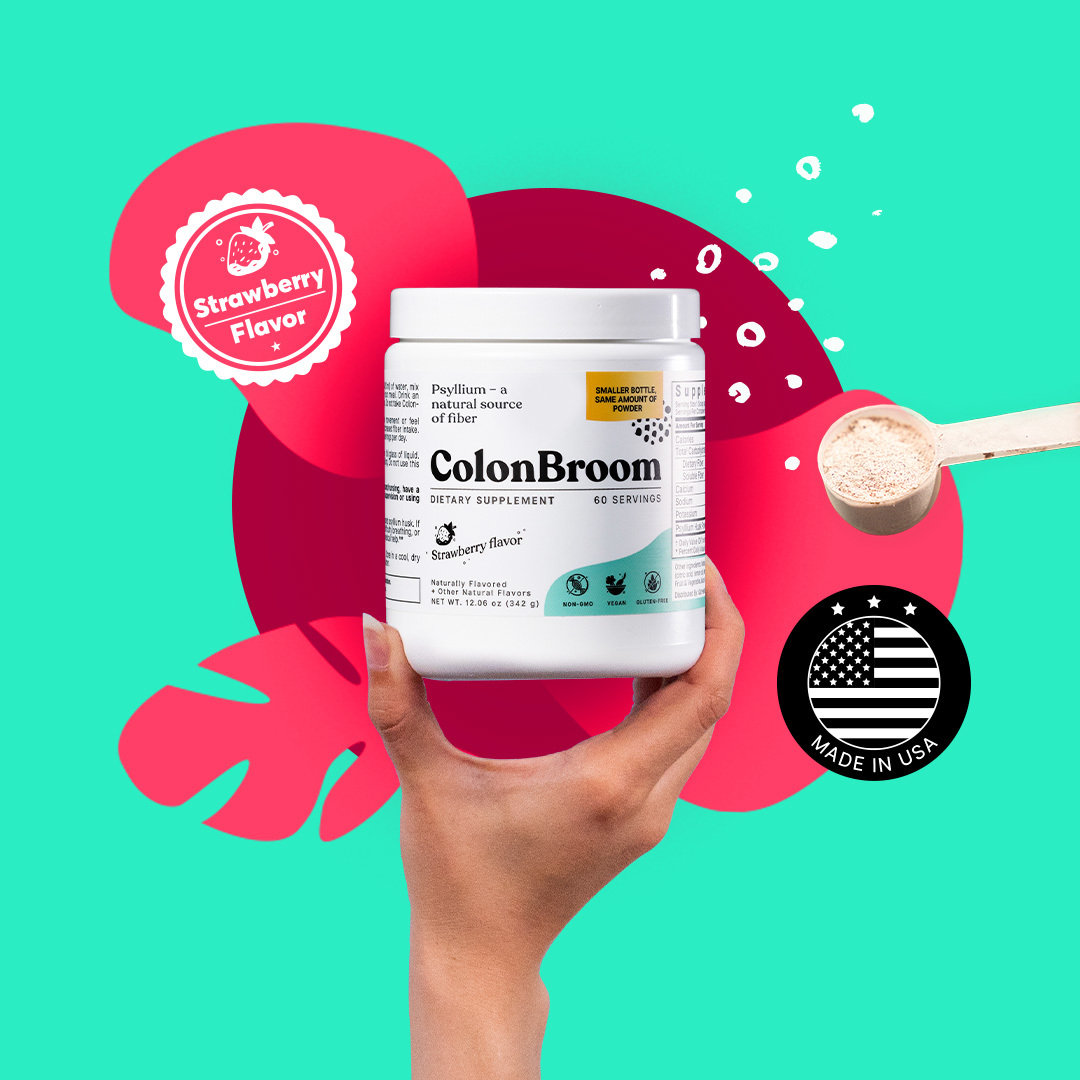The Link Between Low Fiber Intake and Constipation: What You Need to Know
Constipation is a common digestive issue that can significantly impact daily life. It affects people of all ages and can be caused by various factors, including low fiber intake. In this article, we will explore the link between low fiber intake and constipation, and provide you with valuable information to help you understand and address this issue.
Understanding Constipation
Constipation is characterized by infrequent bowel movements and difficulty passing stool. It can also cause abdominal pain, bloating, and a feeling of incomplete evacuation. Several factors can contribute to constipation, including a lack of dietary fiber.
Causes of Constipation
- Low fiber intake
- Inadequate fluid intake
- Lack of physical activity
- Certain medications
Product Spotlight
Aggregate Rating
Our Rating
ColonBroom is a potent fiber supplement designed to enhance gut health and relieve digestive discomfort. Packed with psyllium husk and other ingredients, it aids in alleviating bloating, constipation and supports smoother bowel movements. Its all-rounder program, including a diet guide, workout plan, and app, makes achieving a healthier body effortless.
Impact on Well-being
Constipation can have a significant impact on overall well-being and quality of life. It can lead to discomfort, decreased appetite, and even mood changes. Understanding the causes of constipation, including low fiber intake, is crucial for finding effective solutions.
The Role of Fiber in Digestive Health
Dietary fiber plays a vital role in maintaining healthy bowel movements. It adds bulk to the stool, making it easier to pass through the digestive system. There are two types of fiber: soluble and insoluble.
Soluble Fiber
Soluble fiber absorbs water and forms a gel-like substance in the digestive tract. It helps soften the stool and promotes regular bowel movements. Good sources of soluble fiber include:
- Oats
- Apples
- Citrus fruits
- Beans and legumes
Insoluble Fiber
Insoluble fiber adds bulk to the stool and helps prevent constipation. It passes through the digestive system relatively intact. Good sources of insoluble fiber include:
- Whole grains
- Leafy green vegetables
- Nuts and seeds
- Vegetables with skins
Low Fiber Intake and Constipation
A diet low in fiber can contribute to constipation. When you don’t consume enough fiber, your stool becomes hard and difficult to pass. Additionally, low-fiber diets often lack the necessary nutrients for maintaining optimal digestive health.
Common Low-Fiber Foods
- Processed foods
- Fast foods
- White bread and pasta
- Sugary snacks
Increasing Fiber Intake for Improved Bowel Movements
If you’re struggling with constipation, increasing your fiber intake can help improve bowel movements. Here are some practical tips and strategies to incorporate more fiber into your daily meals:
- Start by gradually increasing your fiber intake to avoid digestive discomfort
- Include high-fiber foods in every meal
- Choose whole grain options over refined grains
- Snack on fruits, vegetables, and nuts
Whole Grain Cereals
Whole grains are cereals that contain the entire grain kernel, including the bran, germ, and endosperm, making them rich in fiber and other essential nutrients.
- Oats: A popular breakfast choice, oats can be consumed as rolled oats or steel-cut oats. They’re great for porridge, overnight oats, and in baked goods.
- Quinoa: Technically a seed, quinoa is often classified as a whole grain. It’s gluten-free and can be used in salads, stews, or as a side dish.
- Barley: Pearled barley is common in soups, but hulled barley retains more fiber and can be used similarly.
- Brown Rice: Unlike white rice, brown rice retains its bran, offering more fiber and nutrients.
- Whole Wheat Pasta: A good alternative to regular pasta, especially when aiming for a higher fiber intake.
Fruits and Vegetables
Both fruits and vegetables are essential sources of dietary fiber, particularly when consumed with their skins.
- Apples: Consumed with their skin, apples are a great snack or can be added to salads and desserts.
- Pears: Also best consumed with skin for maximum fiber intake.
- Berries (e.g., raspberries, blueberries): Great for smoothies, yogurt toppings, or eaten as a snack.
- Broccoli: Can be steamed, roasted, or eaten raw in salads.
- Carrots: Consumed raw as snacks, in salads, or cooked in various dishes.
- Brussels Sprouts: Best roasted or steamed and served as a side dish.
Legumes
Legumes are a group of plant foods that include beans, lentils, and peas. They’re not only rich in fiber but also proteins.
- Lentils: Used in soups, stews, or salads. There are various types including green, red, and brown lentils.
- Black Beans: Common in Mexican dishes, soups, and salads.
- Chickpeas (Garbanzo Beans): Used in making hummus, salads, and various Middle Eastern dishes.
- Kidney Beans: A staple in chili and many Indian dishes.
Nuts and Seeds
Nuts and seeds are nutrient-dense foods that provide a good amount of fiber in addition to healthy fats, vitamins, and minerals.
- Almonds: Consumed raw, roasted, or added to dishes for crunch.
- Chia Seeds: High in fiber and can be added to smoothies, yogurt, or used in chia puddings.
- Flaxseeds: Best when ground to be absorbed properly by the body. Great in smoothies, baked goods, or sprinkled on top of dishes.
- Walnuts: Eaten raw or added to salads, desserts, and other dishes.
- Pumpkin Seeds (Pepitas): Can be consumed raw, roasted, or added to salads and yogurt.
Other Lifestyle Factors to Consider
While low fiber intake is a significant contributor to constipation, other lifestyle factors can also influence bowel movements. It’s essential to consider these factors for maintaining optimal digestive health.
Hydration
Staying hydrated is crucial for preventing constipation. Make sure to drink enough water throughout the day to keep your digestive system functioning properly.
Physical Activity
Regular physical activity promotes healthy digestion and helps prevent constipation. Aim for at least 30 minutes of exercise most days of the week.
Final Thoughts
Understanding the link between low fiber intake and constipation is key to improving your digestive health. By incorporating high-fiber foods into your diet and adopting a healthy lifestyle, you can alleviate constipation and enjoy better overall well-being. Make informed dietary choices and consult a healthcare professional if needed.
References:

